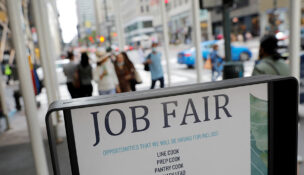Virginia tightens noncompete rules for more workers
New law expands definition of ‘low-wage employee’

DEPOSIT PHOTOS

DEPOSIT PHOTOS
Virginia tightens noncompete rules for more workers
New law expands definition of ‘low-wage employee’
SUMMARY:
- Virginia expands noncompete ban to non-exempt workers under FLSA
- Law takes effect July 1, 2025, regardless of wage threshold
- Employers urged to recheck employee classification status
- Shift continues toward narrower restrictive covenants
In recent years, federal and state governments have embraced a push toward restricting the use of noncompete agreements by employers, most notably with the ultimately unsuccessful 2024 Federal Trade Commission rule that attempted to ban noncompetes nationwide.
While noncompetes are still enforceable in Virginia, recent legislation passed by the General Assembly will further narrow which employees can be subject to noncompetes. During the Legislature’s regular session earlier this year, the General Assembly passed Senate Bill 1218, which expands the definition of “low-wage employee” to an employee who is entitled to overtime compensation under the federal Fair Labor Standards Act.
Under Virginia law, “low-wage employees,” who are defined as employees who earn less than Virginia’s average weekly wage, cannot have noncompete agreements enforced against them. In 2025, that number equates to an annual salary of $76,081.
In other words, SB 1218 prevents employers from enforcing noncompete agreements against any employee classified as “non-exempt” under the FLSA, regardless of if they meet the average weekly wage threshold or not.
“The change to existing law is fairly narrow in scope but significant in application,” Williamsburg attorney Brian G. Muse said.
Roanoke attorney Paul G. Klockenbrink, who is a partner at Gentry Locke’s labor and employment law group, said the new legislation extends a trend in limiting noncompetes. “It’s a continuation of this eroding of the ability to have noncompetes for low-wage employees, and now we’re extending that to regardless of what your wages are,” Klockenbrink said.
[Noncompetes] are a restriction on competition and should be narrowly tailored to avoid placing an undue burden on an employee’s future ability to earn a living.
—Sarah Robb, Richmond
Richmond attorney Sarah Robb, who focuses her practice on employment matters, said it is important for attorneys to understand the intended purpose of noncompete agreements.
“While noncompetes have their place in protecting an employer’s legitimate business interests, they are a restriction on competition and should be narrowly tailored to avoid placing an undue burden on an employee’s future ability to earn a living,” Robb said.
‘His employer just buried him’
Sen. Richard H. Stuart, R-Montross, patroned SB 1218. He told the Senate Commerce and Labor Committee that one of his constituents inspired the bill.
“He was a kid who built docks for a living for a guy, he left and went to work on his own, and then he went into business for somebody else,” Stuart said to the committee in January. “His employer just buried him for the next two and a half years in litigation, all he could do was barely make enough to pay his lawyer.”
Stuart said that that constituent is one of many construction workers who are subject to noncompetes under current law, as they make more than the average Virginia wage. “There’s just no reason why they should be subject to the noncompetes,” Stuart said to the committee. “My substitute just moves the ball a little bit forward – just a little bit forward.”
SB 1218 passed the Senate unanimously before crossing over to the House of Delegates, which passed the bill 49-47 mostly along party lines, with two Republicans joining 47 Democrats in voting for the measure.
Despite the narrow House margin, Gov. Glenn Youngkin signed the bill into law on March 24.
Advising clients
While the term “non-exempt” is absent from the text of SB 1218, the basics of the legislation mean that employees who are non-exempt under the FLSA cannot enter new noncompete agreements after the July 1 effective date of the legislation.
Virginia employment law attorneys said now is the time for employers to ensure that employees are properly classified. “It is a reminder to attorneys advising employers how important it is to correctly classify employees as either exempt or non-exempt and to understand the FLSA definitions surrounding those categories,” Robb said.
McLean attorney Declan Leonard, who is managing partner at Berenzweig Leonard, echoed the sentiments on employee classification.
“This is a good opportunity for employers to take stock between now and July 1 to make sure that any employee who is subject to a non-compete in Virginia is clearly an exempt employee based on both the job duties as well as being paid on a salaried basis,” Leonard said.
Klockenbrink said that the belief by some that salaried employees are not entitled to overtime may cause confusion with the way the law works.
“Somebody might interpret that as ‘well, our person doesn’t get overtime because they’re paid a salary,’” Klockenbrink said. “That’s not what matters. What matters is what you’re appropriately and properly classified as. You’re either exempt or non-exempt — that’s it.”
Klockenbrink added that between now and July 1, it is important for employers to ensure that their classification of employees is complete and accurate. “I think classification and understanding classification correctly is key,” Klockenbrink said.
Practitioners noted that employers could overlook portions of the FLSA that an employee must be paid on a salaried-basis to qualify as exempt under the federal act.
“This salaried-basis prong of the FLSA is often overlooked by employers, and failure to adhere to it means an otherwise exempt employee loses that exemption and therefore is entitled to overtime pay,” Leonard said, noting that under SB 1218, those employees would not be subject to non-competes.
Muse pointed towards the Virginia average weekly wage as a potential area that could trip up clients. The average, Muse noted, is dynamic and can change year-to-year. “The current low wage threshold of $76,081 is not a constant or somehow locked in,” Muse said. “As that changes, and presumably continues to rise over the years, that number will go up as well.”
Muse also cautioned that employers should be wary of using the current threshold as guidance in creating new noncompetes under SB 1218.
“If somebody looks at these and says ‘OK, well, I’ll do a noncompete and just make sure I’m paying them $76,081,’ that may be too low in a year or two,” Muse said. “This is very dynamic and changing quite a bit and will continue to evolve.”
Narrower noncompete use
Muse said SB 1218 continues a trend to limit the use of noncompete agreements.
“We’ve seen a push nationally, as well as in Virginia, to restrict or in some cases eliminate the use of noncompetition agreements by employers,” Muse said.
Leonard said companies “will be hard-pressed these days to keep an employee from outright working for a competitor,” adding that non-competes “have lost a lot of favor in Virginia” in both the courts and the business world.
“Rather, companies need to be much more targeted in their restrictive covenants to get right to the heart of what it is looking to prevent in terms of unfair competition,” Leonard said.
Robb, who advises employees and small business employers, said she’s seen a decrease in the use of noncompetes. Additionally, she’s seeing “an expanded definition of what constitutes information an employee needs to hold ‘confidential’ and an increased use of non-solicitation provisions.”
Muse too, said he has seen the use of all-encompassing noncompetes decrease as more narrower methods have become used more often. “What we’re seeing is a drift from noncompetes to more targeted, restricted covenants that more specifically addresses non-solicitation of customers as well as protection of confidential information and trade secrets,” he said.
Klockenbrink said that while he still sees noncompetes in his practice, he believes employers “are being a little more mindful on who they give it to.”
“I’m seeing it about the same, but I am seeing employers are much more aware of trying to make these restrictions narrow and trying to understand if it is worthwhile to try and enforce,” Klockenbrink said.
Robb said another consideration in the use of noncompetes is if attorneys and their employer clients should seek to enforce broad noncompete agreements.
“In evaluating a noncompete already in place, even if it is not technically prohibited by prior Virginia law or SB 1218, attorneys should keep in mind that boilerplate language with broad definitions of what work is considered ‘competition,’ an expansive geographic scope or long time periods for enforcement could very well be disfavored in Virginia courts,” Robb said.
Despite the “drift” away from noncompetes and the narrowing of eligible employees under Virginia law, Muse said attorneys will continue to see noncompetes in the business and employment spaces.
“I don’t want to come across that noncompetes no longer have a place,” Muse said. “I think, certainly, we will continue to see noncompetes with respect to high-level executives where a noncompete is needed or used when it is in connection with the sale of a business.”
s


















